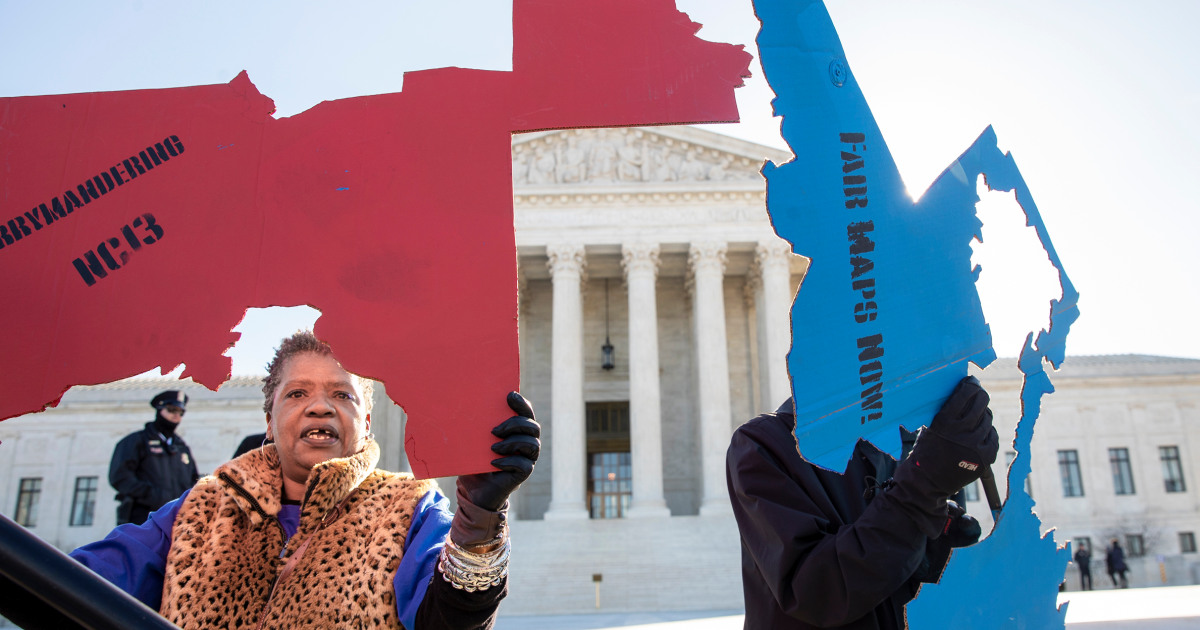Understanding The GOP Appeal Following The North Carolina Supreme Court Election

Table of Contents
The Role of Key Issues in the GOP Appeal in North Carolina
The GOP's success in North Carolina wasn't solely based on one issue; rather, it was a confluence of factors skillfully leveraged by the party. Understanding these issues is critical to comprehending the GOP appeal North Carolina.
Abortion Rights and the Conservative Voter Base
The overturning of Roe v. Wade had a profound impact on the North Carolina political landscape. The GOP's generally anti-abortion stance resonated strongly with a significant segment of the electorate, particularly among socially conservative voters. This segment proved highly motivated to turn out and vote.
- Increased voter turnout among socially conservative groups: Data indicates a marked increase in voter participation amongst religious groups and those who strongly identify as socially conservative.
- Impact of restrictive abortion laws on campaign strategies: The GOP effectively framed the election as a battle over abortion access, galvanizing their base and motivating them to vote.
- The role of religious organizations in mobilizing voters: Churches and other faith-based organizations played a significant role in mobilizing voters, emphasizing the importance of electing candidates who aligned with their views on abortion.
Available polling data from reputable sources like the Pew Research Center show a clear correlation between strong anti-abortion views and support for the GOP in North Carolina. Analyzing these statistics reveals the influence of this issue on the GOP's overall success.
Economic Concerns and the Appeal to Working-Class Voters
While social issues played a role, economic anxieties also significantly influenced the election. The GOP effectively targeted working-class voters by focusing on issues of economic hardship.
- Focus on job growth and economic opportunity: The GOP emphasized policies aimed at stimulating job growth and economic development in the state.
- Emphasis on tax cuts and deregulation: Promises of tax cuts and deregulation resonated with some voters, suggesting a path to greater prosperity.
- Targeting specific economic anxieties within communities: The party tailored its message to address specific economic concerns within different communities, such as rising inflation and the cost of living.
The GOP's economic platform, while debated, tapped into prevalent anxieties about economic security and financial stability, influencing the choices of many voters.
Cultural Issues and the GOP's Messaging
Beyond economics and abortion, cultural issues played a significant role in shaping the GOP’s appeal.
- Emphasis on parental rights in education: The focus on parental rights in education, particularly regarding curriculum and school policies, resonated with a significant portion of the electorate.
- Focus on "traditional values" and social conservatism: The GOP's messaging emphasized traditional values and social conservatism, successfully connecting with a specific segment of the population.
- Use of targeted advertising and social media campaigns: The party employed targeted advertising and social media campaigns to effectively reach and persuade voters on these cultural issues.
This strategic messaging regarding cultural values, amplified by targeted social media campaigns, proved highly effective in swaying voters.
Demographic Shifts and the Expanding GOP Base in North Carolina
Understanding the GOP's success necessitates examining the shifting demographics within North Carolina and their impact on voting patterns.
Shifting Demographics and Voter Turnout
Changes in voter demographics played a significant role in the GOP's victory. Certain demographic groups shifted their support towards the Republican Party, leading to increased GOP voter turnout. Analyzing voter registration data and exit polls reveals which demographic groups experienced the most significant shifts.
Rural vs. Urban Divide
A clear urban-rural divide emerged, with the GOP enjoying stronger support in rural areas. Factors contributing to this disparity include differing economic concerns, cultural values, and access to information. Analyzing the geographic distribution of support helps understand this urban-rural split.
The Influence of Race and Ethnicity
The role of race and ethnicity in shaping voting patterns remains complex. The GOP employed various strategies to reach different communities, with varying degrees of success. Examining voter registration data by race and ethnicity, as well as exit polls, gives insight into the impact of race and ethnicity on voting patterns.
Campaign Strategies and Tactics that Contributed to the GOP's Success
The GOP’s success wasn’t accidental; it stemmed from a well-executed campaign strategy.
Ground Game and Voter Mobilization
The GOP's robust ground game, involving extensive voter registration drives and get-out-the-vote initiatives, proved instrumental in mobilizing their base. This strong on-the-ground effort directly contributed to increased voter turnout.
Messaging and Communication Strategies
The party's clear and consistent messaging effectively resonated with their target demographics. Analyzing specific campaign ads and their impact highlights the success of their communication strategies. The use of social media and targeted digital campaigns further enhanced their reach and messaging effectiveness.
Fundraising and Campaign Spending
The GOP's significant fundraising efforts provided crucial financial resources for their campaign, allowing them to invest in advertising, ground game operations, and other vital aspects of their strategy. Analyzing campaign finance data provides a clearer understanding of the role of resources in the election's outcome.
Conclusion
The North Carolina Supreme Court election underscores the complexities of the GOP appeal, demonstrating the party's ability to mobilize its base and attract new voters through a combination of targeted messaging, focus on key issues, and effective campaign strategies. Understanding the GOP appeal in North Carolina requires analyzing not only the political climate but also the demographic shifts and the evolving concerns of the electorate. Further research into these factors will be crucial for understanding future election outcomes, both within North Carolina and nationally. To stay informed on the evolving political landscape and deepen your understanding of the GOP appeal in North Carolina, continue to follow reputable news sources and political analyses. Understanding the ongoing dynamics of the GOP appeal North Carolina is vital for comprehending the future direction of the state's political trajectory.

Featured Posts
-
 Wyroznienia W Dyskursie Publicznym Przypadki Solidarnosc I Republika
May 02, 2025
Wyroznienia W Dyskursie Publicznym Przypadki Solidarnosc I Republika
May 02, 2025 -
 England Women Vs Spain Women Match Preview Predictions And Lineups
May 02, 2025
England Women Vs Spain Women Match Preview Predictions And Lineups
May 02, 2025 -
 Winter Storm Overwhelms Tulsa Firefighters 800 Calls For House Fires And Rescues
May 02, 2025
Winter Storm Overwhelms Tulsa Firefighters 800 Calls For House Fires And Rescues
May 02, 2025 -
 Australian Election Oppositions 9 Billion Budget Plan
May 02, 2025
Australian Election Oppositions 9 Billion Budget Plan
May 02, 2025 -
 Travis And Stacias Digital Exclusive Tulsa Winter Weather Timeline
May 02, 2025
Travis And Stacias Digital Exclusive Tulsa Winter Weather Timeline
May 02, 2025
Latest Posts
-
 Addressing Ghanas Mental Health Crisis The Psychiatrist Shortage
May 03, 2025
Addressing Ghanas Mental Health Crisis The Psychiatrist Shortage
May 03, 2025 -
 Enhancing Mental Health Literacy An Educational Approach
May 03, 2025
Enhancing Mental Health Literacy An Educational Approach
May 03, 2025 -
 Stratigiki P Syxikis Ygeias 2025 2028 Krisimes Paremvaseis
May 03, 2025
Stratigiki P Syxikis Ygeias 2025 2028 Krisimes Paremvaseis
May 03, 2025 -
 I Nea Ethniki Stratigiki P Syxikis Ygeias 2025 2028
May 03, 2025
I Nea Ethniki Stratigiki P Syxikis Ygeias 2025 2028
May 03, 2025 -
 The Importance Of Mental Health Literacy Education In Schools And Communities
May 03, 2025
The Importance Of Mental Health Literacy Education In Schools And Communities
May 03, 2025
